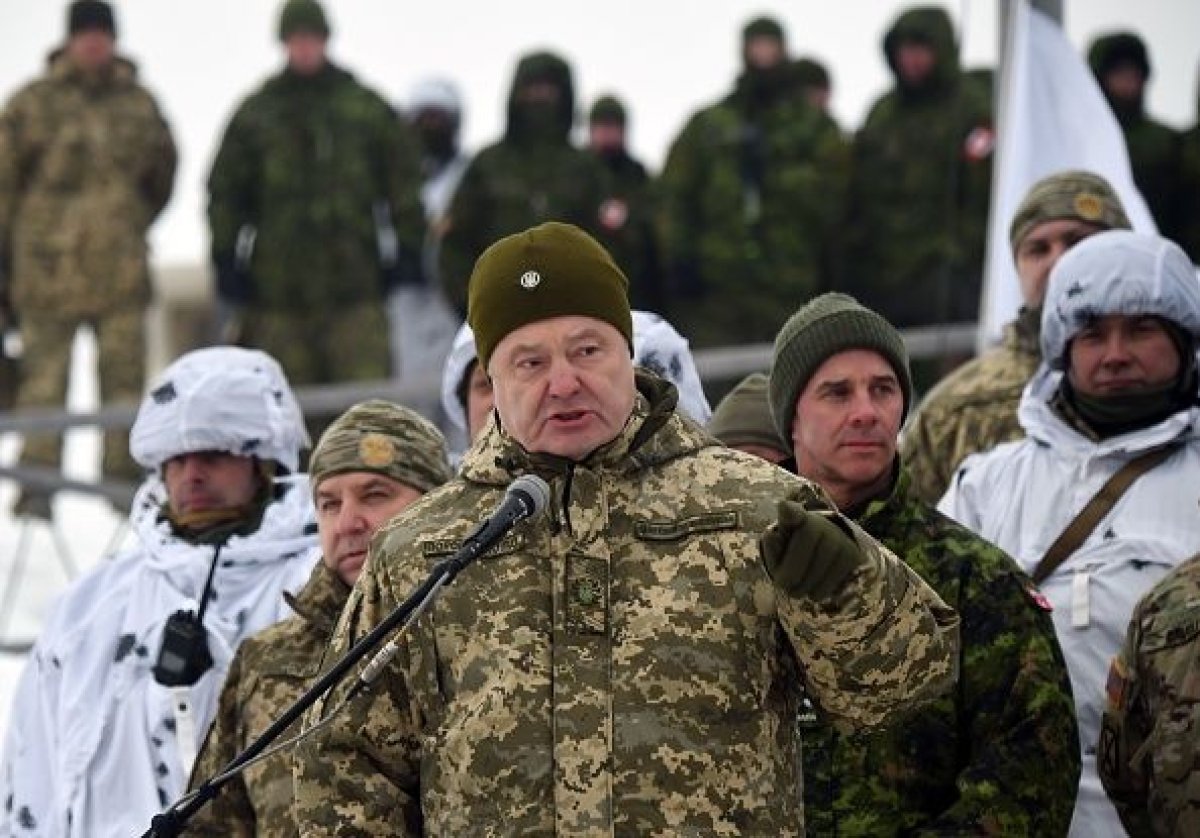The treaty of Friendship, Cooperation, and Partnership that Russia and Ukraine signed after the fall of the Soviet Union will soon expire, and officials in Kiev have informed their counterparts in Moscow that it will not be renewed.
For many, the news was unsurprising, given that the two countries have been at war for the past five years. Russia has backed pro-Russian separatists fighting for independence from Ukraine in the country's east, a region known as the Donbas, and annexed the Crimean peninsula from Ukraine despite the objections of the international community. Several months ago, Russia seized three Ukrainian naval ships. The sailors are still in Russian custody.
Still, Russia slammed Ukraine on Wednesday for allowing the treaty to expire.
"The document is in the interests of both our countries, and the dissolution of this document would not benefit our nations; it is like shooting yourself in the foot," Kremlin spokesman Dmitry Peskov told reporters on Wednesday. Russia's foreign ministry also released a statement claiming it had been willing to renegotiate the treaty's terms, and said that it was not Moscow's fault if the document expires.

International experts, however, argue that it makes sense for Ukraine to allow the treaty to expire because Russia has violated its provisions. The treaty officially expires on March 31, exactly 20 years after it came into force.
"The Friendship Treaty of 1997 committed both Russia and Ukraine to respect each other's territorial integrity and sovereignty. The Kremlin violated this treaty—just as it violated the 2003 treaty regarding Azov and Kerch, and the Budapest Memorandum—when it seized Crimea and launched its covert war in Donbas," former U.S. ambassador to Ukraine John Herbst told Newsweek.
"The treaty is set to expire at the end of this month because Ukraine sees no reason to renew a treaty Moscow continues to violate. A reasonable position. The Kremlin may try to spin this as evidence of Ukraine's aggressive intent, and to justify an escalation of its undeclared aggression. But, of course, such an argument has no merit. This treaty is rightly tossed aside as an example of the Kremlin's bad faith," Herbst continued.
Ukraine's President Petro Poroshenko recently announced that his country would solidify its alliances with the European Union and NATO and cancel the treaty with Russia as it pursues integration with the West.
Officials in Ukraine also noted that the country's leadership decided not to terminate the treaty ahead of time because it allowed Kiev to pursue various lawsuits against Russia for violating the friendship treaty's terms.
"During this period we were able to take advantage of the opportunity to file all lawsuits against the Russian Federation, and we can continue to do so on the basis of the violations of the treaty committed by Russia until March 31, 2019, as the agreement is still valid until that moment," Ivanna Klympush-Tsintsadze, Ukraine's Deputy Prime Minister for European and Euroatlantic Integration, said during a recent television interview.
"That means that all these violations, such as the illegal annexation [of Crimea], and the invasion of eastern Ukraine, and the attack and aggression in the Black Sea and Sea of Azov region, in the Kerch Strait, all these things are documented and are grounds for us to sue the Russian Federation," she continued.
Russia has also accused Ukraine of violating the treaty. Moscow, for example, accused Kiev of "conducting a targeted offensive against the Russian language and the rights of the Russian-speaking population of Ukraine." The Kremlin also claimed that Ukraine had violated the treaty by building closer ties to the West.
Uncommon Knowledge
Newsweek is committed to challenging conventional wisdom and finding connections in the search for common ground.
Newsweek is committed to challenging conventional wisdom and finding connections in the search for common ground.
About the writer
Cristina Maza is an award-winning journalist who has reported from countries such as Cambodia, Kyrgyzstan, India, Lithuania, Serbia, and Turkey. ... Read more
To read how Newsweek uses AI as a newsroom tool, Click here.








